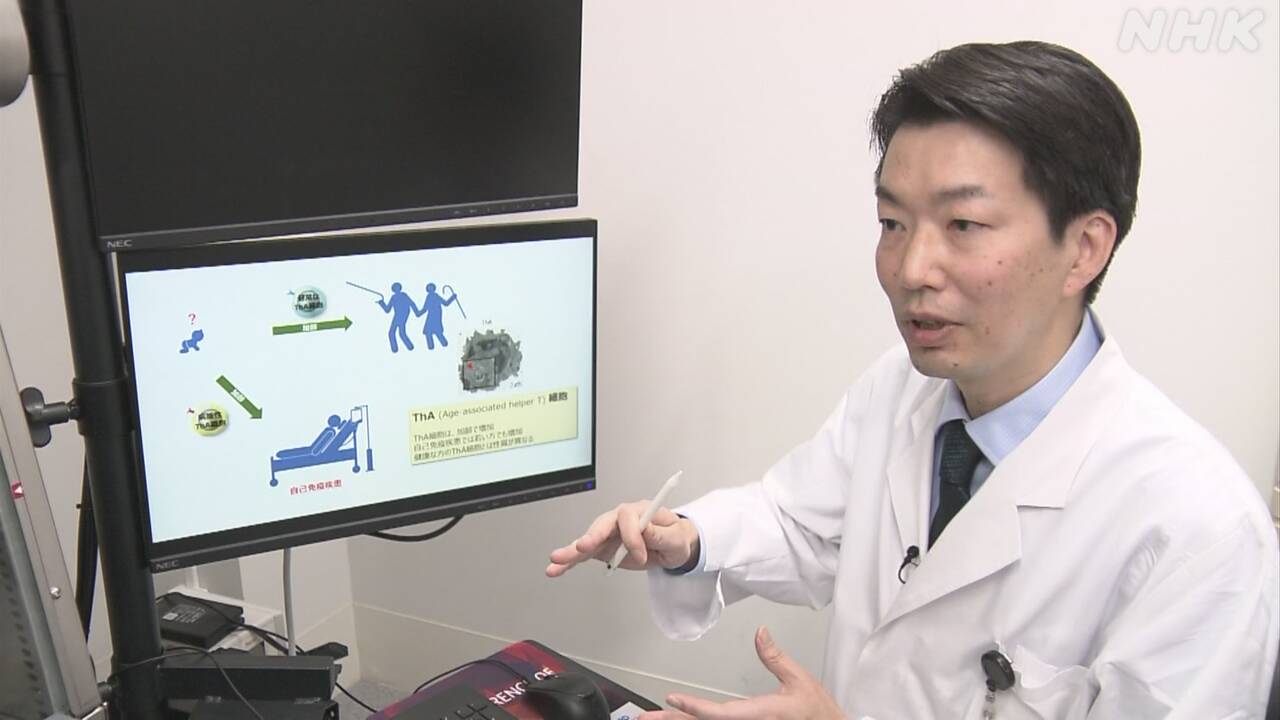A group including the University of Tokyo has announced that patients with autoimmune diseases such as rheumatoid arthritis, where the immune system attacks their own tissues, have an increase in the number of previously unknown special immune cells. . The group believes that this result will lead to the development of new treatments.
This research was published in an international journal by a group including the Department of Allergy and Rheumatology at the University of Tokyo Hospital.
Autoimmune diseases are diseases in which the immune system attacks one's own tissues, causing inflammation, and although it is known that they often develop after middle age, the exact cause is not known.
The group analyzed the blood of 354 people, including patients with autoimmune diseases such as rheumatoid arthritis and systemic lupus erythematosus, as well as healthy people, and found that they discovered a previously unknown special immune cell that increases as we age. He discovered them and named them "ThA cells."
Upon further investigation, they discovered that in patients with autoimmune diseases, the properties of these cells are different from those in healthy people, and that they have a function that encourages them to attack their own tissues.
For this reason, the group believes that differences in the properties of these cells may be involved in the onset of the disease.
``If we can remove disease-causing immune cells or restore them to healthy cells, we hope that this will lead to the treatment of autoimmune diseases and the realization of healthy longevity,'' said Ryohisa Okamura, a specially appointed associate professor at the University of Tokyo. ” he said.

